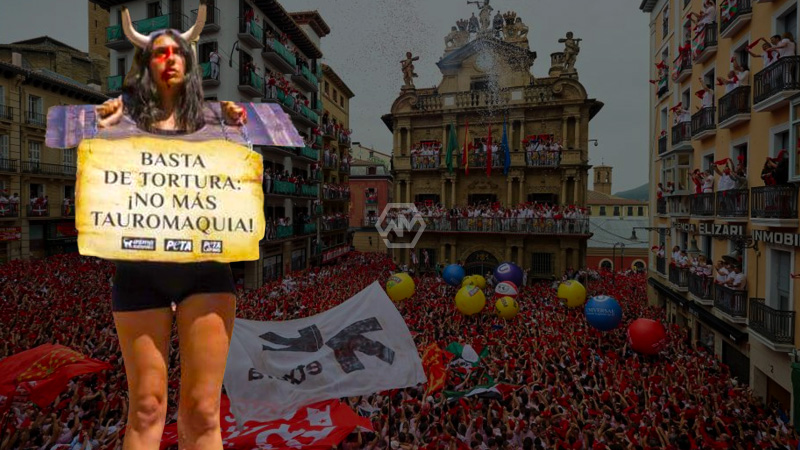- The San Fermín Festival, including the famous Pamplona bull run, started with the Chupinazo rocket launch.
- The festival runs from July 7 to 14, featuring daily bull runs and evening bullfights.
- Despite protests from animal rights activists, the event attracts thousands of international visitors.
The annual San Fermín Festival in Pamplona, Spain, kicked off with the Chupinazo, a traditional rocket launch, signaling the start of the festivities. The nine-day event, dedicated to the city’s patron saint, San Fermín, includes concerts, processions, and the famed running of the bulls.
Despite the festival’s popularity, it faces significant opposition from animal rights activists who protest the treatment of the bulls. Each year, the event sees numerous injuries among participants running the 875-meter course.
San Fermín Festival: Tradition and Controversy in Pamplona
The San Fermín Festival, held in Pamplona, northern Spain, is renowned for its exhilarating bull runs. Beginning with the Chupinazo rocket launch, the festival spans nine days from July 7 to 14, honoring the city’s patron saint, San Fermín. The main attraction is the daily bull runs where participants race through narrow streets, guiding six bulls to the evening bullfights.
The festival has a rich history dating back to the late 16th century and incorporates various cultural events, including concerts and processions. Despite the festive atmosphere, the bull runs are fraught with danger, with several participants injured each year on the 875-meter course. The event’s mix of tradition, excitement, and risk draws spectators and thrill-seekers alike.
Animal rights activists have long protested the bull runs, condemning the practice as cruel and inhumane. Their campaigns highlight the distress and harm inflicted on the bulls, sparking a global debate about animal rights and cultural traditions. Despite these protests, the festival maintains its popularity, continuing to attract thousands of visitors annually.
International tourists flock to Pamplona for the San Fermín Festival, contributing to the local economy and cultural exchange. The festival’s unique combination of historical significance and modern-day controversy makes it a focal point for discussions on tradition versus animal welfare. As the festival progresses, the tension between preserving cultural heritage and addressing ethical concerns remains in the spotlight.
The San Fermín Festival remains a significant cultural event that draws international attention, balancing tradition and modern ethical considerations. Its future will likely continue to spark debate and attract visitors from around the world.
“The festival, which draws thousands of visitors each year, is as famous for its thrilling bull runs as it is for the controversy surrounding animal rights.”



